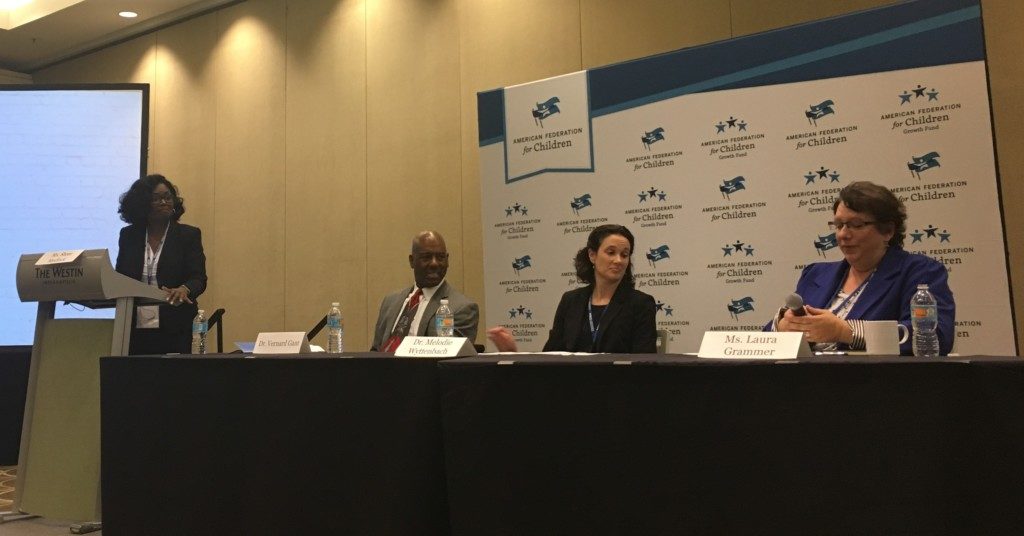
From think tank reports to protests that greeted Education Secretary Betsy DeVos in Indianapolis, a common thread binds many of the most stringent objections to vouchers and other school choice programs.
The arguments go something like this. Private schools don’t serve all students. They exclude vulnerable students. They contribute to racial segregation, and, in the wake of Brown v. Board, hatched voucher-like programs to evade integration.
Leaders of private schools that have begun to enroll tens of thousands of students who use vouchers to pay tuition see things differently. Most private school choice programs are aimed either at low-income students or those with special needs. Turning to these programs to boost enrollment has prompted some private schools to re-examine their identities as exclusive institutions.
“We’re in a new phase,” Vernard Gant, director of the ACE Student Success Center with the Association of Christian Schools international, said during a panel discussion hosted by the American Federation for Children. “Most of the growth that we’re now seeing in the Christian school movement is now happening among this very diverse student population.”
Gant didn’t shy away from the fact that some Christian schools once served as “white-flight academies.” In some parts of the South, this happened by design. White communities set up private schools and made attempts, quickly thwarted by courts, to funnel public money to them. Elsewhere in the country, it happened by default. Private schools were only open to families of means.
In the past 20 years, that’s begun to change. The Louisiana Scholarship Program serves an overwhelmingly black student population, and researchers found it helps reduce racial segregation. The Florida tax credit scholarship serves predominantly low-income black and Hispanic students. And many new scholarship programs cater specifically to children with special needs.
“The encouraging thing is that our schools are really stepping up to this charge, believing that this is the Lord’s doing,” Gant said. “The historically un-favored are now being favored, are now being accepted.”
Laura Grammer, head of the Oaks Academy Middle School in Indianapolis, said her school has been intentionally diverse from the get-go. It’s had to make sure different student groups are represented on its board and among its faculty. And, she added, private schools that want to serve children with special needs need to make sure they have the right support in place.
“You have to look at yourself and say: Do we really want to educate all children?” she said. That means school leaders need to ask themselves uncomfortable questions. “Who feels welcome here? How do you know of they’re succeeding?”
Correction: An earlier version of this post misspelled the name of Vernard Gant. We regret the error.



“We serve low income children”
“Oh wait we get property taxes and the public schools are shutting down”
“We get ALL children!”
“Have you children heard of the lie called evolution and how Jesus Christ rode dinosaurs in the fight to stop the liberals?”